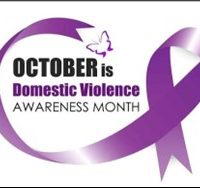Identifying a Healthy vs. Unhealthy Relationship

By: Celeste Mazloum
The month of October marks National Domestic Violence Abuse Month. Domestic violence is repeated abusive behavior in any relationship used to control one’s partner. This abuse can be physical, sexual, emotional, economic, or psychological. This abuse can include physical violence, sexual violence, and isolation. In other words, behavior that intimidates, scares, or hurts one’s partner. In most cases, the abuser uses manipulation as a tactic to control their partner. This can be guilt tripping, gaslighting, or passive aggression. Anyone can be a victim of domestic violence, and it’s important to remember that it’s not your fault and there is always a way out! In this article, we will differentiate a healthy relationship from a toxic, unhealthy one.
A relationship is meant to add value and improve your quality of life. You are meant to feel loved and supported. Healthy relationships have:
- Open and honest communication
- When they fight, like all couples do, they actively listen to each other and engage in constructive conflict resolution.
- Respect for one another
- Both partners respect each other’s opinions, choices, and boundaries.
- Trust
- Both partners are honest and reliable. You should feel safe and secure around your partner.
In contrast, some relationships are toxic or unhealthy. Sometimes you may not even recognize the abuse in your relationship as it is happening. However, as soon as you recognize unhealthy patterns, please seek support from loved ones around you like friends and family. Unhealthy relationship patterns are:
- Lack of communication and Isolation
- This includes yelling, insults, dismissing your partner’s feelings, and avoiding conflict. As well as, isolating you from your friends and family, making you feel like you can only rely on your partner.
- Disrespect
- This includes criticism, belittling, and disregarding boundaries. This may also include criticizing and belittling your clothing style or music taste.
- Mistrust
- This includes lying, constant suspicion, and extreme jealousy.
If you find yourself relating to the unhealthy relationship patterns, talk to a trusted individual; they can be there for you and even offer a different perspective. Practice self-care by prioritizing your physical and mental health. A few examples are exercising, journaling, or meditating.
Always remember, you are loved and have value!
Help is always available. Contact:
The National Domestic Violence Hotline here or at 800-799- SAFE (7233).
The Florida 24 Hour Domestic Violence Hotline here or at 800-500-1119.
The local resource MUJER here or at 305-763-2459.













